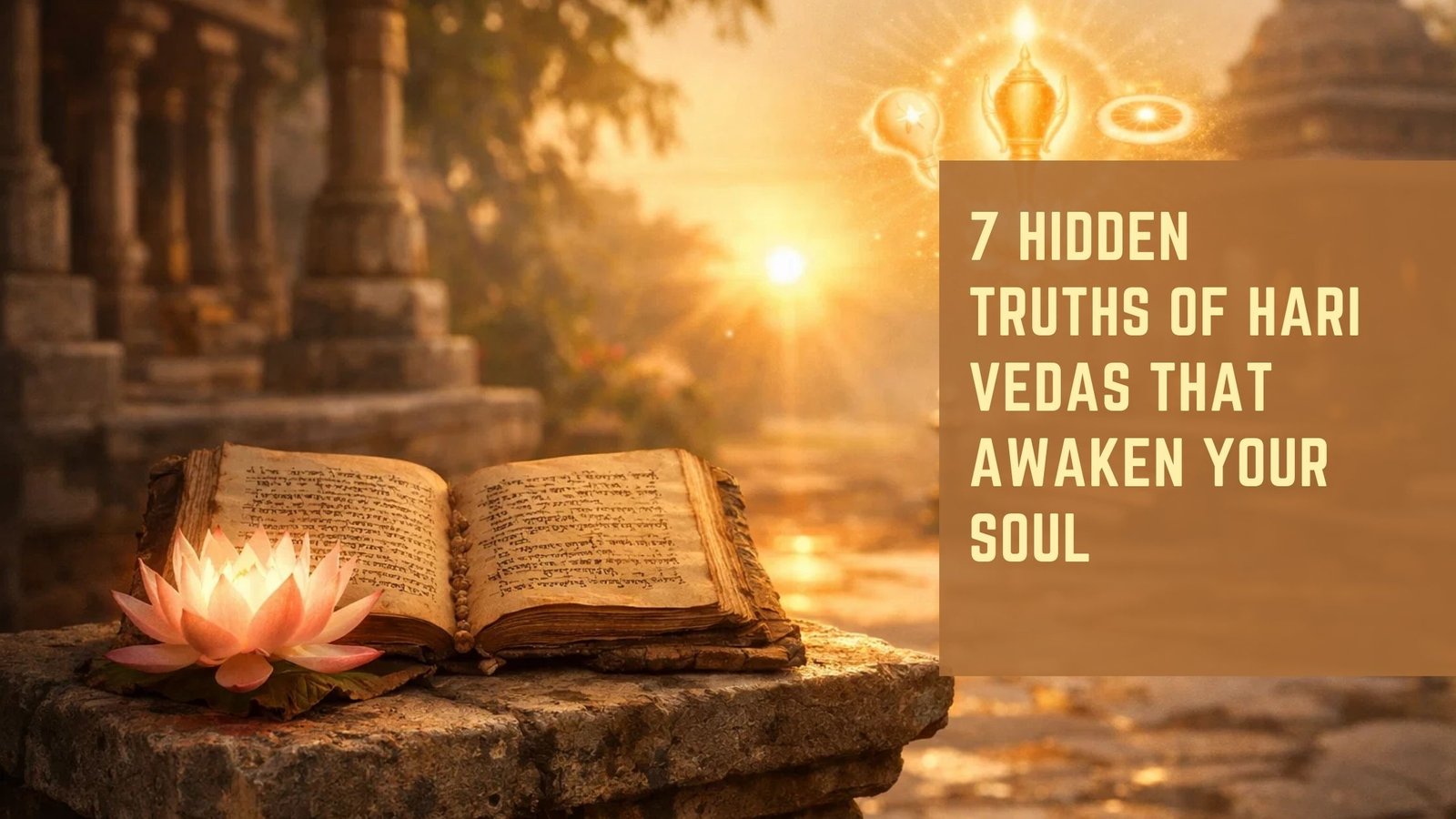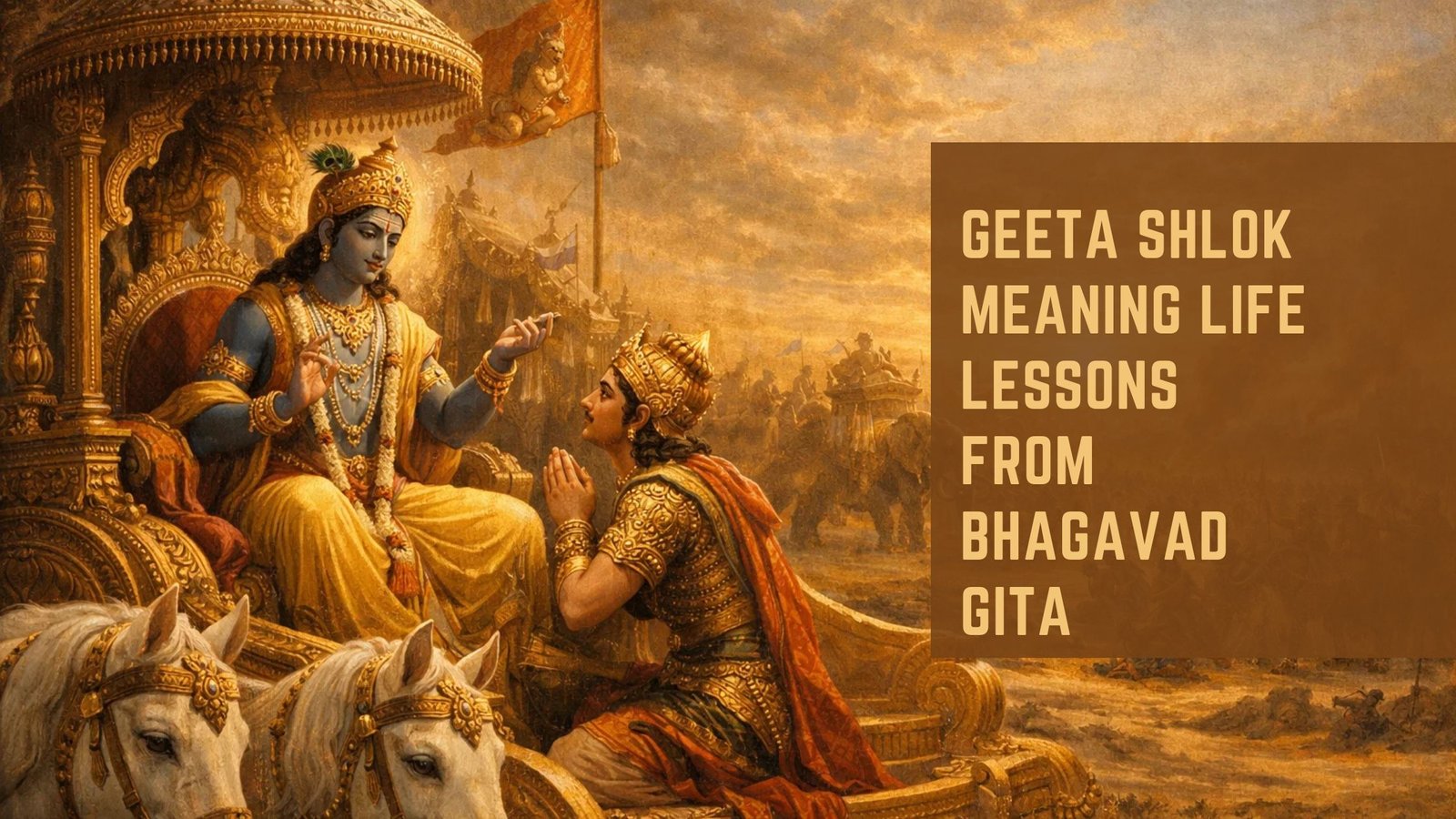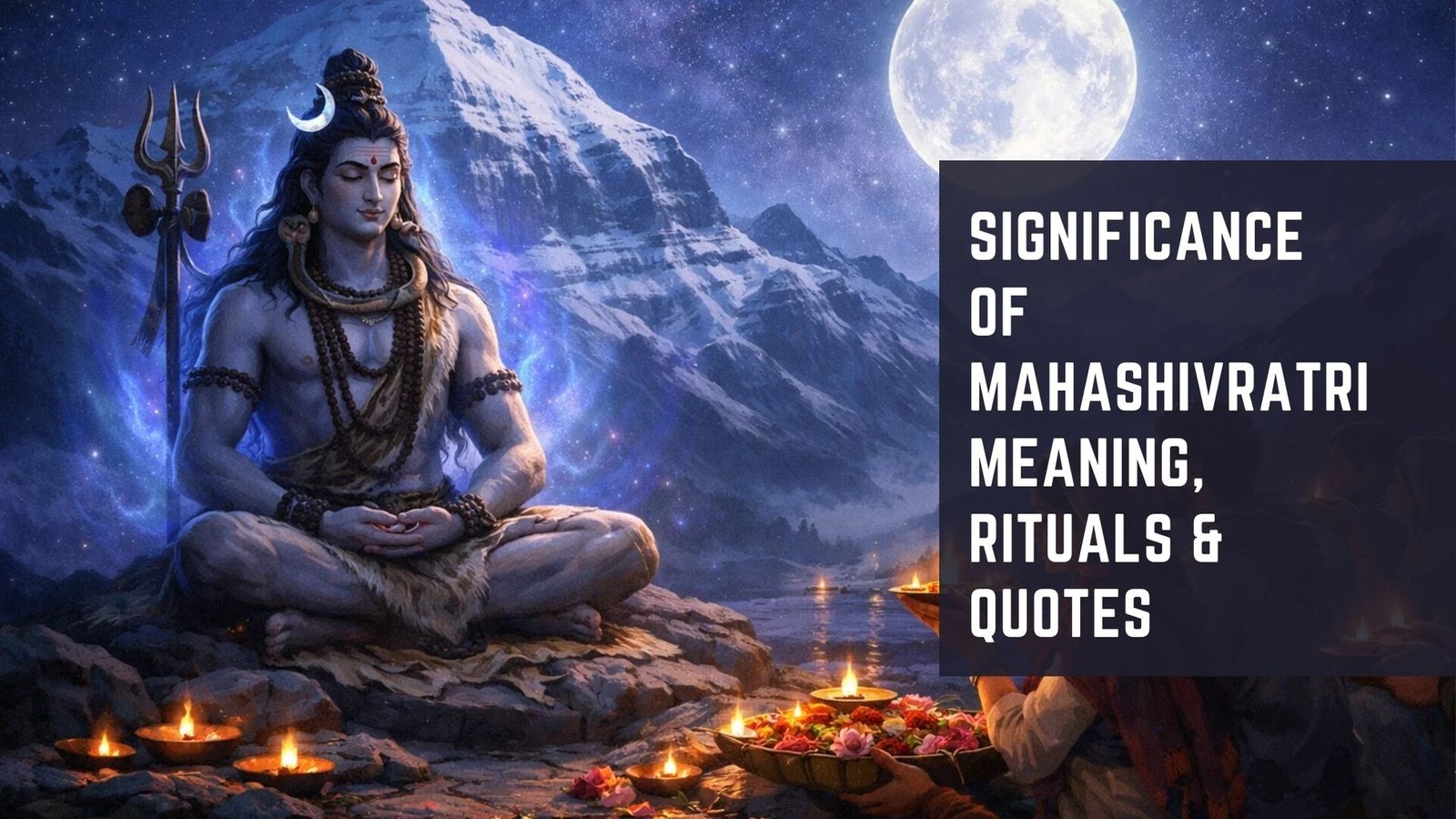The Bhagavad Gita, a revered text in Hindu philosophy, serves as a profound guide to understanding the complexities of life, duty, and spirituality. In Chapter 7, Verse 20, the Gita delves into the nature of human devotion and the various paths individuals take in their quest for fulfillment. This verse highlights the concept of divine illusion, illustrating how many people, driven by their desires and attachments, turn to deities and forms of worship that resonate with their personal aspirations.
The Gita emphasizes that these individuals are often ensnared by their own misconceptions, mistaking temporary satisfaction for true spiritual enlightenment. In this context, the verse invites readers to reflect on the motivations behind their spiritual practices. It challenges them to consider whether their devotion is rooted in a genuine search for truth or merely a response to worldly desires.
The teachings of the Gita encourage a deeper understanding of the self and the divine, urging individuals to transcend superficial worship and seek a more profound connection with the ultimate reality. This exploration sets the stage for a broader discussion on divine illusion, divine energy, and the transformative power of surrendering to the divine.
Key Takeaways
- The Bhagavad Gita 7:20 introduces the concept of divine illusion and the nature of divine energy.
- Understanding the concept of divine illusion helps in surrendering to the divine and finding inner peace.
- Surrendering to the divine and embracing the ultimate knowledge of Bhagavad Gita 7:20 can help in overcoming challenges.
- Applying the teachings of Bhagavad Gita 7:20 in daily life can lead to inner peace and guidance in overcoming challenges.
- Embracing the ultimate knowledge of Bhagavad Gita 7:20 can lead to finding inner peace and overcoming challenges in daily life.
Understanding the concept of divine illusion
The Illusion of Reality
In this state of illusion, people often become entangled in their desires, attachments, and fears, mistaking them for the essence of life. The Gita teaches that this illusion is not merely an external force but also an intrinsic aspect of human consciousness that must be recognized and transcended.
Transcending the Illusion
The concept of divine illusion serves as a reminder that what one perceives as reality may not be the ultimate truth. Many individuals worship deities or pursue spiritual practices based on their limited understanding of existence, often seeking fulfillment in transient pleasures.
Toward Self-Realization and Enlightenment
The Gita encourages seekers to look beyond these illusions and recognize the eternal nature of the soul. By doing so, they can begin to dismantle the barriers created by Maya and embark on a journey toward self-realization and enlightenment.
Exploring the nature of the divine energy

The Bhagavad Gita presents a multifaceted view of divine energy, often referred to as “Shakti.” This energy is not only the source of creation but also the driving force behind all existence. It manifests in various forms, influencing both the material and spiritual realms. Understanding this divine energy is crucial for anyone seeking to deepen their spiritual practice and connect with the essence of life itself.
Divine energy is characterized by its dynamic and transformative nature. It flows through all beings, sustaining life and facilitating growth. In recognizing this energy, individuals can cultivate a sense of unity with all creation.
The Gita teaches that by aligning oneself with this divine energy, one can transcend personal limitations and tap into a greater source of wisdom and strength. This alignment fosters a sense of purpose and direction, guiding individuals toward their highest potential.
The significance of surrendering to the divine
| Aspect | Significance |
|---|---|
| Peace of mind | Letting go and surrendering to the divine can bring inner peace and reduce anxiety. |
| Trust in the universe | Surrendering allows one to trust that the universe has a plan and will guide them in the right direction. |
| Reduced stress | By surrendering, one can release the need to control everything, leading to reduced stress levels. |
| Alignment with higher purpose | Surrendering to the divine can help align one’s actions with their higher purpose and spiritual path. |
| Acceptance | It allows for acceptance of things that cannot be changed, leading to greater emotional resilience. |
Surrendering to the divine is a recurring theme in the Bhagavad Gita, particularly in Chapter 7, Verse 20. This act of surrender is not a sign of weakness but rather an acknowledgment of one’s limitations and an expression of trust in a higher power. By relinquishing control and allowing oneself to be guided by divine wisdom, individuals can experience profound transformation and liberation from the burdens of ego and desire.
The significance of surrender lies in its ability to foster inner peace and clarity. When individuals let go of their need to control outcomes and instead place their faith in the divine, they open themselves up to new possibilities and insights. This surrender creates space for grace to enter their lives, allowing them to navigate challenges with greater ease and resilience.
The teachings of the Gita emphasize that true strength comes from recognizing one’s dependence on the divine and embracing humility as a pathway to spiritual growth.
Applying the teachings of Bhagavad Gita 7:20 in daily life
Integrating the teachings of Bhagavad Gita 7:20 into daily life requires conscious effort and reflection. One practical approach is to cultivate awareness of one’s motivations and desires. By examining the reasons behind one’s actions—whether they stem from genuine spiritual longing or worldly attachments—individuals can begin to discern patterns that may lead them astray.
This self-inquiry fosters a deeper understanding of oneself and encourages alignment with higher principles. Another way to apply these teachings is through regular practices such as meditation, prayer, or mindfulness. These practices create opportunities for individuals to connect with their inner selves and the divine energy that permeates all existence.
By dedicating time each day to quiet reflection or spiritual contemplation, individuals can nurture their relationship with the divine and cultivate a sense of surrender. This commitment to spiritual practice not only enhances personal growth but also contributes to a more harmonious existence within the broader community.
Finding inner peace through the wisdom of Bhagavad Gita 7:20

The wisdom encapsulated in Bhagavad Gita 7:20 offers profound insights into achieving inner peace amidst life’s challenges. By recognizing the transient nature of worldly desires and attachments, individuals can cultivate detachment from outcomes while remaining engaged in their responsibilities. This shift in perspective allows them to navigate life’s ups and downs with equanimity, fostering a sense of calm that transcends external circumstances.
Moreover, embracing the teachings of surrender can lead to a deeper sense of trust in life’s unfolding journey. When individuals let go of their need for control and embrace uncertainty with faith, they often find themselves experiencing moments of grace and clarity. This inner peace becomes a refuge during turbulent times, enabling individuals to respond to challenges with wisdom rather than reactivity.
The Gita’s teachings serve as a guiding light, illuminating the path toward lasting tranquility.
Overcoming challenges with the guidance of Bhagavad Gita 7:20
Life is replete with challenges that can often feel overwhelming or insurmountable. However, the guidance offered by Bhagavad Gita 7:20 provides valuable tools for overcoming adversity. By recognizing that many struggles arise from attachment to outcomes or desires, individuals can begin to shift their focus toward acceptance and surrender.
This shift allows them to approach challenges with a sense of resilience rather than despair. Additionally, drawing upon the concept of divine energy can empower individuals to face difficulties with renewed strength. Understanding that they are part of a larger cosmic order can instill a sense of purpose even in trying times.
This connection fosters courage and determination, enabling them to confront obstacles with confidence and grace.
Embracing the ultimate knowledge of Bhagavad Gita 7:20
In conclusion, Bhagavad Gita 7:20 offers profound insights into the nature of devotion, divine illusion, and the transformative power of surrendering to the divine. By understanding these concepts, individuals can embark on a journey toward self-realization and spiritual enlightenment. The teachings encourage seekers to look beyond superficial desires and attachments, fostering a deeper connection with their true selves and the divine energy that permeates all existence.
Embracing this ultimate knowledge requires commitment and introspection but ultimately leads to inner peace, resilience, and clarity in navigating life’s challenges. As individuals integrate these teachings into their daily lives, they cultivate a sense of purpose and alignment with higher principles. The wisdom found within the Bhagavad Gita serves as an enduring guide for those seeking truth amidst life’s complexities, illuminating the path toward spiritual fulfillment and liberation from illusion.
In Bhagavad Gita chapter 7 verse 20, Lord Krishna reveals his divine nature as the source of all beings. This verse emphasizes the importance of surrendering to the Supreme Being and seeking refuge in Him. It reminds us of the eternal truth that God is the ultimate source of all creation and the ultimate destination of all souls. This concept is further explored in an insightful article titled “The Spiritual Wisdom of the Bhagavad Gita” by Vyasa. This article delves into the profound teachings of the Gita and highlights the importance of self-improvement and inner strength in achieving spiritual enlightenment. To read more about this topic, visit here.
FAQs
What is the significance of Bhagavad Gita chapter 7 verse 20?
Bhagavad Gita chapter 7 verse 20 is a verse from the ancient Indian scripture, the Bhagavad Gita. It is a part of a conversation between Lord Krishna and Arjuna, where Lord Krishna explains the nature of the divine and the material energies.
What does Bhagavad Gita chapter 7 verse 20 say?
The verse states: “Those whose intelligence has been stolen by material desires surrender unto demigods and follow the particular rules and regulations of worship according to their own natures.”
What is the context of Bhagavad Gita chapter 7 verse 20?
In the Bhagavad Gita, Lord Krishna explains the different paths to spiritual realization and the nature of the divine and material energies. In this verse, he discusses how people who are driven by material desires may worship demigods and follow specific rituals and rules according to their own inclinations.
How is Bhagavad Gita chapter 7 verse 20 relevant today?
The verse highlights the importance of understanding the nature of material desires and the various paths to spiritual realization. It encourages individuals to cultivate a deeper understanding of their own inclinations and the impact of material desires on their spiritual journey.














